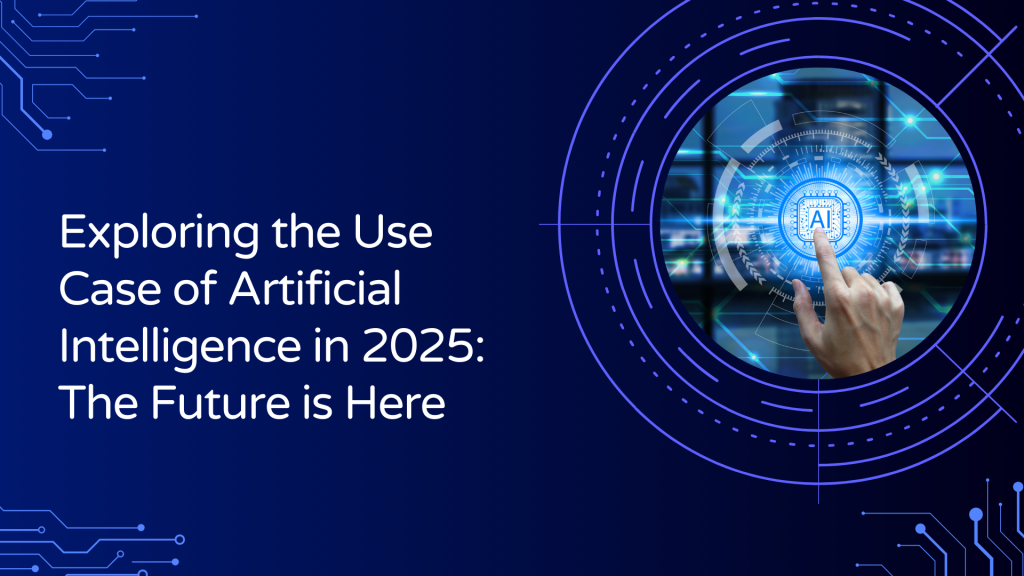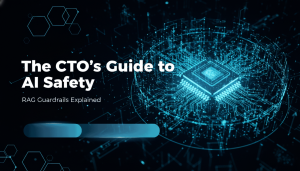Introduction
Artificial intelligence, once just an idea in science fiction, has become a real force in various industries. This quick change shows the potential of AI to change how businesses run and how people live and work. As we near 2025, the future of AI looks like an exciting path of new ideas and changes.
The Evolution of Artificial Intelligence: From Origins to 2025

The story of AI started in the mid-1900s. This was a time when brilliant thinkers like Alan Turing and John McCarthy had big ideas. Their work helped create the basic ideas behind AI, with the Turing test helping us understand machine intelligence. But, AI really showed its usefulness in the later years of the century.
At first, AI was mostly about expert systems based on rules. These systems tried to copy human skills in certain areas. Then came machine learning, which changed everything. Now, machines could learn from data. This change led to the AI applications we see today that rely on lots of data.
Tracing the Historical Milestones of AI Development
The start of the 21st century saw a huge growth in AI skills. This change was driven by important events. The arrival of big data gave machine learning programs a lot of information to work with. During this time, AI moved from labs to real-life uses.
A major success in recent years is generative AI. This part of AI, shown by models like ChatGPT, is about making new content. This can be text, code, images, or even music. Many people are amazed by how these models can create content that looks and sounds human. This has also started bigger talks about what this technology means for us.
As AI research keeps growing quickly, we expect more amazing advances. The lines between human creativity and what machines create are becoming less clear. The future of AI could change how we interact with technology, showing endless possibilities.
Key Technological Breakthroughs Leading to 2025
As we get closer to 2025, major tech advances are pushing AI to be a top innovator. Natural Language Processing (NLP) is one area where machines learn to understand and talk in human languages. We see this in virtual assistants like Siri and Alexa and in smart chatbots. NLP is changing how we use and communicate with technology.
Predictive analytics is another big change. With AI’s skill to look at vast amounts of data, companies can now foresee future trends very accurately. This affects various industries such as finance, healthcare, marketing, and customer service.
AI is also changing software development. AI tools help developers write better code, automate routine tasks, and even create code from natural language. This speeds up the software development process and lets developers work on more creative and complicated tasks.
Artificial Intelligence in Everyday Life by 2025

By 2025, AI will be a big part of our everyday lives. It will be more than just new technology. Many people already use AI in different ways, often without knowing it. For example, we get personal choices on streaming sites and use AI in map apps that help us avoid traffic. AI is making our lives better every day.
In the years ahead, AI will become even more part of our lives. Picture a future where your home knows what you need before you say it, your car drives itself, and your health care fits you based on your genes. These ideas, which seemed like dreams before, are now coming true with the integration of AI.
AI in Home Automation and Personal Assistants
The idea of smart homes is getting better and better. This change is due to AI and the Internet of things (IoT) coming together. Virtual assistants like Amazon’s Alexa and Google Assistant are now very common. They let people control different parts of their homes just by using their voice.
But this is only the beginning. As AI technology grows, we can dream of homes that know what we need and can change easily to fit our likes. Imagine a home where the temperature changes on its own to what you like, the lights create the right atmosphere, and your fridge orders food before you notice you are low on supplies.
On top of that, AI-powered personal assistants will change from basic voice assistants to smart companions. These companions will get to know our feelings, likes, and everyday routines. They will help us with reminders and even keep us company. This will make our lives simpler and more fun.
Impact on Daily Transportation: Autonomous Vehicles
The automotive industry is changing fast due to the quick rise of AI. Autonomous vehicles, which used to seem like science fiction, are now becoming a part of our lives. They promise to change how we get around, travel, and deliver goods.
The benefits of autonomous vehicles are more than just making things easier. Here are some important advantages:
- Increased Safety: Vehicles powered by AI can watch their surroundings in real-time. They can react faster than people and make smart choices to help lower accidents caused by human mistakes.
- Reduced Congestion: These vehicles can talk to each other and intelligent traffic signals. This helps make traffic flow better, leading to smoother trips and less traffic.
- Enhanced Accessibility: Autonomous vehicles can help people who can’t drive, like the elderly or those with disabilities, gain more freedom in getting around.
Even though there are challenges like rules and how people view these cars, AI’s role in transportation is clear. As the technology for autonomous driving gets better, we will see a big change in how we think about and use transportation.
Revolutionizing Industries with AI in 2025

The year 2025 will show how AI changes many industries. It can make complex supply chains easier and offer tailored experiences to customers. The uses of AI seem like they have no end. Companies that accept and adjust to this new technology are likely to do well in the future.
Yet, using AI widely means we also have more responsibility. We must focus on ethics, protect data privacy, and think about how jobs could be affected. The future of AI is not just about its smart technology. It also relies on how we can use it in a responsible and ethical way.
Healthcare: Predictive Analytics and Personalized Medicine
The healthcare industry is about to change in a big way, and AI is a key part of this change. Predictive analytics helps healthcare workers find people who are at high risk for certain diseases. This allows for early treatments that can save lives.
One exciting use of AI in healthcare is drug discovery. AI can scan large amounts of data about molecular structures, genes, and clinical trials. This helps to find possible new drugs and guess how well they might work, and it does this faster and more accurately than before. This can speed up creating new treatments for diseases like cancer, Alzheimer’s, and HIV.
AI is also making personalized medicine possible. It allows treatments to be adjusted based on a person’s specific genes, habits, and environment. Moving away from a one-size-fits-all way of treating patients could change how healthcare is delivered and improve results.
Finance: AI-driven Investment Strategies and Fraud Detection
The finance industry is always quick to adapt to new technologies, and AI is one of them. AI-driven investment strategies are changing how banks and other financial firms manage their assets, evaluate risks, and decide on investments. With AI, algorithmic trading can look at market trends right away. It spots patterns and makes trades faster and more accurately than human traders can.
AI is also making a big difference in fraud detection. AI systems can sort through a huge amount of transaction data to notice any fraudulent activities as they happen. This helps banks reduce losses and keeps consumers safe from financial crimes.
The potential economic impact of AI in finance is very big. AI helps improve operations, lower risks, and opens up new investment chances. This technology is changing the finance world for both businesses and consumers.
Retail: Enhancing Customer Experience with AI
The retail industry is using AI to improve shopping. It helps understand customer behavior and make operations better. AI recommendation engines are getting smarter by looking at what customers browse, buy, and their background. This makes product suggestions more personal. As a result, people are happier with their shopping, which boosts sales and builds customer loyalty.
AI is also changing how customer service works in retail. AI chatbots can help customers 24/7. They answer questions, give product information, and process returns. This makes customer service faster and allows human reps to focus on tougher problems.
As AI technology improves, we can expect more personalized shopping. For instance, virtual shopping assistants can give styling advice. Smart shelves can check inventory and change prices automatically. Overall, AI is ready to change how we shop for the better.
Business Operations: Enhancing Efficiency and Productivity
Businesses in many fields are using AI to make their work easier and better. AI helps to automate tasks that repeat and follow specific rules. This allows workers to spend time on more important and creative projects.
AI is helping with things like pulling data, processing invoices, managing supply chains, and improving customer support. Because of this, businesses are seeing lower costs, more work done, and higher profits.
AI also helps companies see useful information from data that used to be hard to manage. This information helps leaders make smarter choices, use resources better, and keep up with their competitors.
Education: A Game Changer for Learning Environments
AI is set to change traditional education. It will make learning more personal, fun, and effective. AI tutoring systems adjust to each student’s learning style. They can spot knowledge gaps and offer specific lessons to help students do well.
AI also personalizes learning by creating unique paths for students. It points out useful resources and gives real-time feedback on how they are doing. This tailored method keeps students involved and eager to learn, which improves their results.
Furthermore, understanding AI is becoming very important for jobs today. Schools see the need to prepare students with the skills they need to do well in an AI-focused world. This has led to the integration of AI concepts and tools in lessons across many subjects.
The Economic Implications of AI Advancements by 2025

The impact of AI progress by 2025 will be big and complex. Many people worry about losing jobs to machines. But AI is also opening up new jobs in fields like AI development, data science, and AI integration.
To handle the changing job market, it is important to adapt and learn new skills. Governments, schools, and businesses should work together. They need to create training programs to help workers prepare for future jobs.
Job Creation vs. Automation: Navigating the Future Workforce
As AI becomes increasingly integrated into various industries, the job market is undergoing a period of transformation. While automation may lead to displacement in certain sectors, AI is also creating new opportunities that require a different skill set.
Job Displacement Risk | Job Creation Potential |
Manufacturing | AI Development |
Transportation (Truck Drivers, Taxi Drivers) | Data Science |
Customer Service Representatives | AI Integration Specialists |
Data Entry Clerks | Robotics Engineers |
The future workforce will need individuals who are adaptable, critical thinkers, and possess strong problem-solving skills. These skills are essential for working effectively with AI systems and adapting to the constantly changing demands of the digital age. By focusing on STEM education and encouraging lifelong learning, we can prepare the future generation for the evolving job landscape.
AI’s Contribution to Global Economic Growth
AI is expected to greatly impact the global economy. It will enhance productivity, spark new ideas, and promote economic growth. A recent study by PwC shows that AI could add up to $15.7 trillion to the global economy by 2030.
This growth will come from various factors. These include more automation, better decision-making, and new products and services. As AI technology develops and becomes easier to use, businesses will find more chances to add AI to their work. This will help improve efficiency and boost productivity.
Yet, to unlock the full potential of AI, we must plan carefully and work together. We need to tackle issues like data privacy, ethical concerns, and the demand for skilled workers. This approach is crucial to ensure that AI benefits everyone in society.
Ethical Considerations and Privacy Concerns in AI
The fast growth of AI brings important questions about ethics and privacy that need attention. As AI systems become more independent and start making choices that affect people’s lives, it is key to have clear rules about how they should be designed and used.
Protecting personal data is very important. AI uses large amounts of data, so we must keep people’s information safe. We need to find a balance between new ideas and protecting individual rights. This balance helps to build trust and ensures that AI is developed in a responsible way.
Balancing Innovation with Data Protection
As AI use grows, it’s very important to find a balance between encouraging new ideas and keeping data safe. Privacy concerns are a big topic in the talks about AI, and they should be. AI systems usually need a lot of personal data. This raises worries about how this data is collected, stored, and used.
Regulations like the European Union’s General Data Protection Regulation (GDPR) help with these worries. They aim to give people more control over their personal information and ensure businesses treat this data correctly.
At the same time, data protection laws need to change as AI technology changes. We must find the right way to support new ideas while protecting people’s privacy. This will need open talks and teamwork between lawmakers, tech companies, and the public.
Addressing Bias and Fairness in AI Algorithms
One important ethical issue in AI is bias in algorithms. AI systems learn from data, and if this data shows social biases, the AI will just continue and amplify those biases. This can lead to unfair or discriminatory results in places like loan applications, hiring, and even criminal justice.
To tackle bias in AI, we need to take multiple steps. It’s important to have diversity in the teams that make AI systems. We also need to choose and examine the data used for training these systems carefully. Regular checks for bias and methods to fix these issues are vital for promoting fairness and responsibility in AI.
In the end, making AI fair is not just a technical problem; it’s a social matter too. It needs ongoing conversation, teamwork, and a promise to build AI systems that show our values of fairness and justice.
Preparing for the AI Future: Skills and Education
The future of AI is closely connected to how well we prepare ourselves with the right skills and knowledge. We must change traditional education to include AI literacy. This will help students learn critical thinking, problem-solving, and how to adapt.
Also, it is very important to support continuous learning and upskilling. Technology is advancing quickly, and people need to be ready to change with the job market. They must be willing to learn new skills for the future of AI.
The Demand for AI Literacy Across Professions
The need for AI knowledge is growing. It is important not just for tech jobs but in many other careers too. In today’s fast-changing job market, it is key to know the basics of AI. This includes how it works, what it can do, and how it affects different jobs.
Having AI literacy helps people use AI tools well. It allows them to analyze insights based on data and make smart choices in their work. For example, marketing experts use AI in customer relationship management (CRM) systems while healthcare workers rely on AI to understand diagnoses. Learning to work with AI is becoming very important.
Taking part in job training focused on AI skills can help individuals stand out. This training can give them a great competitive advantage. It helps people become more adaptable and valuable in their jobs, ensuring they are ready for the future.
Exploring the Use Case of Artificial Intelligence in 2025: The Future is Here
Educational Systems Adapting to the AI Revolution
The AI revolution is changing our traditional education systems. We need to help students gain skills and knowledge for a world driven by AI. This shift in focus is important. While skills like coding and data analysis are key, we also need to encourage critical thinking, problem-solving, creativity, and adaptability.
It’s essential to include AI ideas and tools in different subjects. Students should learn about AI’s ethical issues, data privacy, and its effect on society. They must not only know how to create AI systems but also how to use them in a responsible and ethical way.
Teachers must also change with this new environment. They need training that gives them the right skills to teach AI topics well. This is necessary to ensure that education keeps up with the needs of the AI revolution.
Conclusion
In the fast-changing world of Artificial Intelligence, 2025 will mark an important time for many areas of life and work. AI will change everything from self-driving cars to custom healthcare. As we welcome these new changes, we need to think about the ethical side, privacy issues, and learn new skills for this AI-driven future. It is important to find a balance between new ideas and keeping our data safe while also dealing with bias in technology. Are you ready to change with the AI revolution? Stay updated, learn about AI, and get ready for the great things that are coming. The future is here, so are you ready to take it on?
For a deeper understanding of the financial strategies involved, explore the comprehensive research article on Budget Planning for AI and Blockchain Development Services in 2025 on GoodFirms.
Contents
Frequently Asked Questions
Most frequent questions and answers
By 2025, AI will be part of our everyday lives. We will see advanced home automation making things easier at home. AI-powered personal assistants will give us personalized experiences. There will also be more autonomous vehicles around us. This will make customer interactions feel more smooth and simple.
- AI has some big challenges to overcome.
- We need to think about ethics, especially bias and fairness.
- Protecting data privacy is very important.
- There are skill gaps in the workforce that must be filled.
- We also need to fix any infrastructure issues.
AI tools can help people be more creative and productive. They do this by taking care of dull jobs, giving insights based on data, helping with thinking tasks, and suggesting new ideas.
- People can get ready for a future with AI by accepting ongoing learning.
- They should also work on understanding AI.
- Being able to adapt is important.
- It helps to build skills across different fields.



